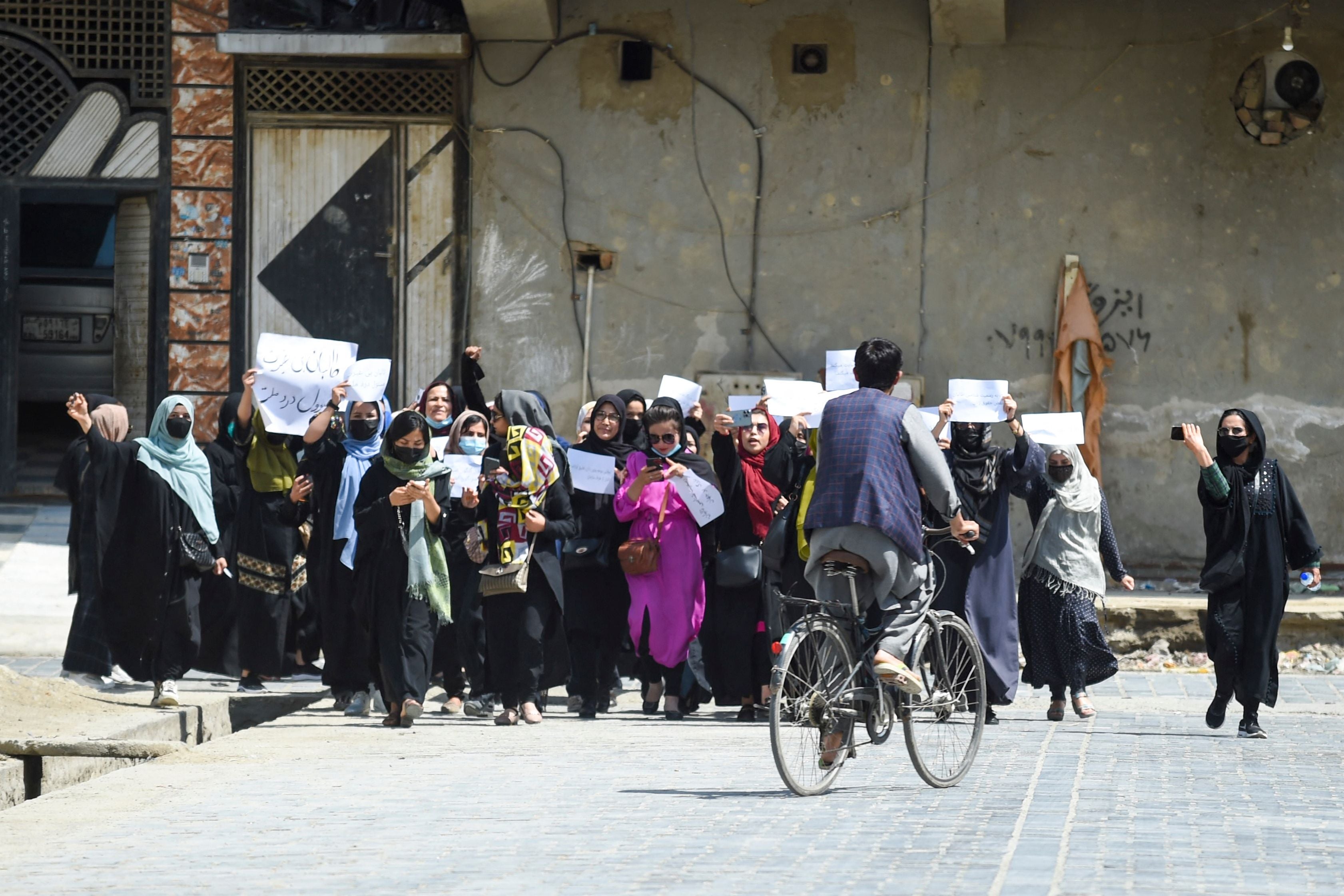Your support helps us to tell the story
From reproductive rights to climate change to Big Tech, The Independent is on the ground when the story is developing. Whether it's investigating the financials of Elon Musk's pro-Trump PAC or producing our latest documentary, 'The A Word', which shines a light on the American women fighting for reproductive rights, we know how important it is to parse out the facts from the messaging.
At such a critical moment in US history, we need reporters on the ground. Your donation allows us to keep sending journalists to speak to both sides of the story.
The Independent is trusted by Americans across the entire political spectrum. And unlike many other quality news outlets, we choose not to lock Americans out of our reporting and analysis with paywalls. We believe quality journalism should be available to everyone, paid for by those who can afford it.
Your support makes all the difference.Hundreds of Afghan women have taken part in protests to criticise what they see as an intentional decision to sideline them from a key UN meeting in Doha.
The closed-door meetings, which involve discussions on the human rights situation in Afghanistan as well as on the removal of sanctions on the Taliban-led nation, will see nations around the world take part.
The de facto authorities from the Taliban have not been invited to the critical talks being led by the UN secretary general Antonio Guterres.
During the meeting, the UN will seek a “common understanding within the international community on how to engage with the Taliban on these issues”.
Leaders from several nations are expected to “reinvigorate international engagement around key issues, such as human rights, in particular women’s and girls’ rights, inclusive governance, countering terrorism and drug trafficking,” the UN said in a statement on Sunday.
In Afghanistan, various protests by women groups took place while the meetings went on. They said they were angered by the talks looking to formalise the Taliban-led regime, despite the erosion of women’s rights in Afghanistan by the interim leaders, who call the handling of the affairs “an internal social issue”.
On Monday, however, 64 Afghan women were reportedly invited to speak virtually, along with a group of envoys, and asked to present their recommendations on reforms in Afghanistan to the UN officials.
The collective said this did not substitute for the official lack of presence of Afghan women on the panel. Its leaders asked the UN and envoys to refrain from compromising the rights of Afghan citizens in return for cooperation from the Taliban.
“Don’t be deceived by Taliban’s promises. They cannot and should not be trusted. There is no moderate Taliban. For us, they are all the same, the ones in Qatar, the Kandaharis and the Haqqanis,” read the top recommendation offered to the leaders in Doha.
It added that the Taliban won’t “give women their basic rights without imposing conditions and pressure from influential countries.”
The UN and other nations have been asked to “refrain from public statements suggesting recognition of the Taliban as such statements further strengthen [its] propaganda as the legitimate government”.
Taliban’s deputy spokesperson Bilal Karimi said they were hoping for the meeting to help remove sanctions on their interim regime and chart out engagement with the international community.
Reacting sharply to the Taliban’s exclusion, Suhail Shaeen, the leader of the regime’s office in Doha, said such meetings will be “unproductive, and even sometimes counterproductive”.
“How will they implement decisions while we are not part of it? Issues can be solved through a pragmatic approach, not one-sided decisions,” he said.
On Thursday, the UN Security Council unanimously condemned a Taliban administration ban on women working for the UN in Afghanistan and called on Taliban leaders to “swiftly reverse” a crackdown on the rights of women and girls.
The Taliban claims to respect women’s rights in accordance with its strict interpretation of Islamic law. Taliban officials said decisions on female aid workers are an “internal issue”.

Join our commenting forum
Join thought-provoking conversations, follow other Independent readers and see their replies
Comments